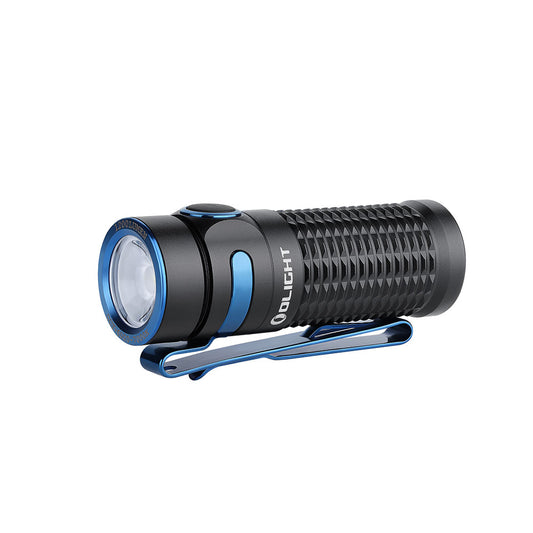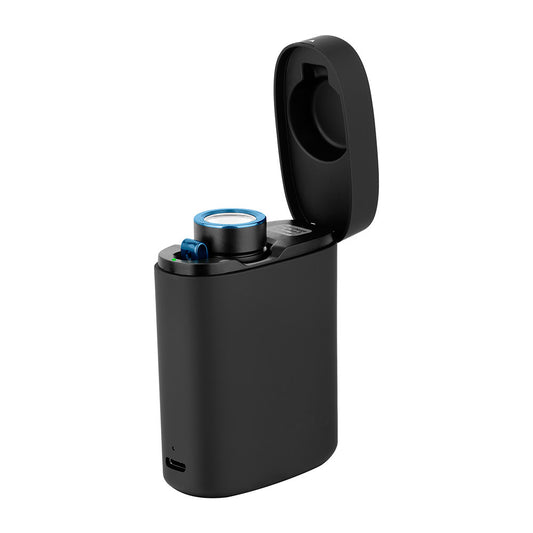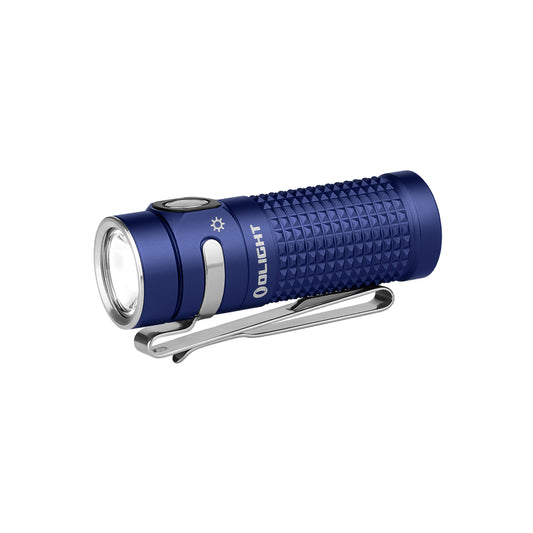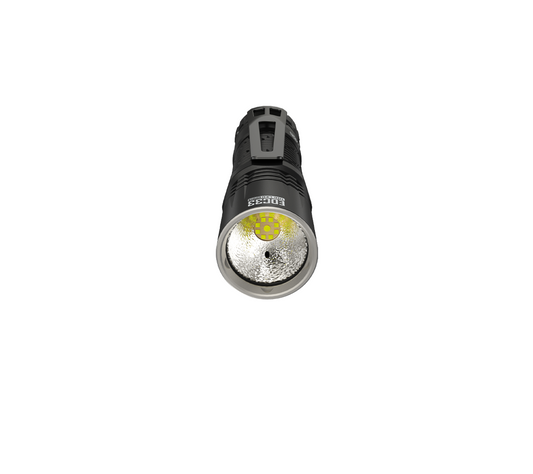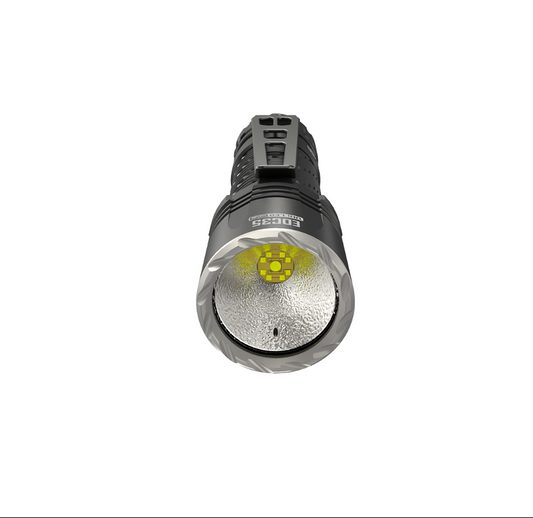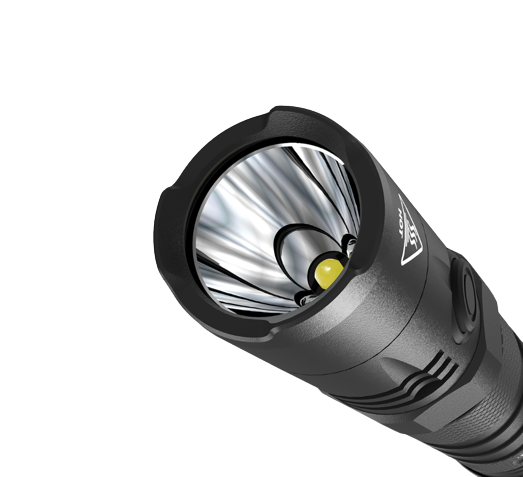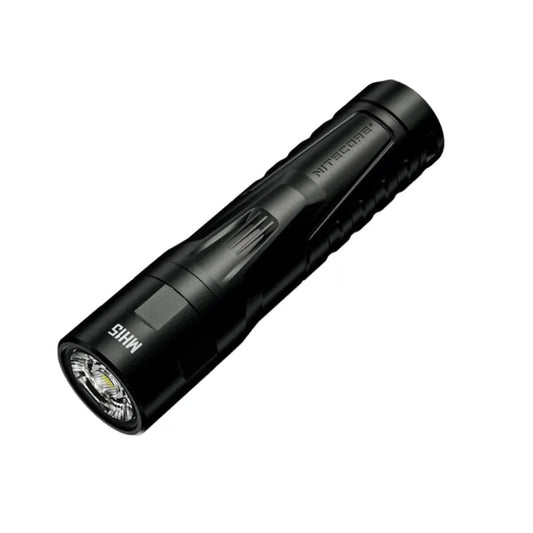
Tongkat Ali: Unveiling the Potential of This Southeast Asian Herb
Tongkat ali, also known as Eurycoma longifolia or longjack, is a plant native to Southeast Asia with a long history of use in traditional medicine. Its roots have been valued for centuries for their purported health benefits, particularly for men's health. Modern science is now starting to shed light on the potential of this intriguing herb. Now, if you want to find out more about a Viagra-like herb, this isn't the article for you. But we'll discuss the basics of it a little below.

Chemical Composition and Traditional Uses
The key to understanding Tongkat Ali's potential health benefits lies in its unique chemical makeup. The plant is rich in a group of active compounds called quassinoids. These bitter-tasting substances, with eurycomaoside, eurycolactone, and eurycomanone being the most prominent, are believed to be responsible for the plant's medicinal properties.
Traditionally, tongkat ali has been a staple in Southeast Asian medicine cabinets. Communities across the region have used it to treat a wide range of ailments. In Malaysia, for example, a decoction made from the root bark has been used to combat fevers, while in Indonesia, it's been used to treat infections and boost low libido. These traditional uses have sparked scientific interest in recent times, leading researchers to delve deeper into the potential of Tongkat ali for specific health conditions.
Potential Health Benefits of Tongkat Ali
1. Male Sexual Health and Fertility:
One of the most well-researched areas of tongkat ali's potential is its impact on male sexual health. Low testosterone levels are:
- A common concern for men.
- Leading to a decrease in libido.
- Erectile dysfunction.
- Infertility.
Studies suggest that tongkat ali supplementation may increase testosterone levels in men with low testosterone. This potential benefit is particularly interesting because testosterone plays a crucial role in sperm production and motility. A review published in the Journal of the International Society of Andrology analyzed existing research on tongkat ali. The review found that supplementation with tongkat ali increased testosterone levels and improved sperm quality in some men. However, it's important to be cautious about generalizing these findings. The quality of the studies included in the review varied considerably. Further research with robust methodologies is needed to definitively confirm Tongkat Ali's effectiveness in boosting testosterone and improving male fertility.

2. Stress Management:
Chronic stress is a modern-day epidemic. Our fast-paced lives, filled with work pressures, financial anxieties, and interpersonal challenges, can take a toll on our physical and mental health. When stress becomes chronic, it can lead to a cascade of negative health consequences, including high blood pressure, heart disease, anxiety, and depression. This is where the potential benefits of tongkat ali for stress management become particularly intriguing.
The Stress Response and Cortisol:
To understand how tongkat ali might help manage stress, we need to delve into the body's stress response system. When we encounter a stressful situation, our body releases hormones like cortisol, also known as the "fight-or-flight" hormone. Cortisol helps us cope with the immediate stressor by increasing alertness, energy, and blood sugar levels. However, chronically elevated cortisol levels can wreak havoc on our health. Cortisol suppresses the immune system, contributes to weight gain, and disrupts sleep patterns.
Tongkat Ali and Cortisol Modulation:
A small study published in the Asian Journal of Andrology explored the potential of tongkat ali to modulate cortisol levels and improve mood in healthy adults. The study involved dividing participants into two groups: one receiving a daily tongkat ali supplement and the other receiving a placebo. After a period of supplementation, researchers observed a significant decrease in cortisol levels in the Tongkat Ali group compared to the placebo group. This suggests that tongkat ali may help to regulate the body's stress response by lowering cortisol levels.
Potential Mechanisms:
While the exact mechanisms behind Tongkat Ali's potential stress-reducing effects are not fully understood, some theories exist. One theory suggests that tongkat ali may influence the hypothalamic-pituitary-adrenal (HPA) axis, the complex system responsible for regulating stress hormones like cortisol. Another theory proposes that the quassinoids in Tongkat Ali might have adaptogenic properties. Adaptogens are a class of herbs believed to help the body adapt to stress by improving resilience and promoting a sense of calm.
Improved Mood and Well-Being:
The study mentioned earlier also reported improvements in mood in the tongkat ali group compared to the placebo group. Participants reported feeling more vigorous and friendly, suggesting that Tongkat Ali supplementation might not just reduce stress hormones but also contribute to a more positive emotional state.
The Need for Further Research:
While these initial findings are promising, it's important to remember that this was a small study. More research with larger participant pools and robust methodologies is needed to confirm tongkat ali's effectiveness in managing stress definitively. Additionally, research is required in order to explore the optimal dosage of tongkat ali for stress management and to understand its potential long-term effects.
Conclusion
Tongkat ali shows promise as a potential natural approach to stress management. Its ability to lower cortisol levels and improve mood warrants further investigation. However, before incorporating tongkat ali into your stress management routine, it's crucial to speak with your doctor to discuss potential interactions with any medications you're taking and to ensure it's suitable for your individual health needs.

3. Body Composition and Athletic Performance:
Tongkat ali has a long history in traditional medicine and has become a hot topic in the world of athletics. Its reputation as a natural testosterone booster has captured the attention of athletes and fitness enthusiasts alike, with claims of unlocking an athlete's potential for increased muscle mass, improved strength gains, and enhanced athletic performance. However, before incorporating tongkat ali into your training regimen, let's delve deeper into the scientific evidence surrounding these claims and explore the complexities of this intriguing herb.
The Testosterone Connection and the Quest for Optimization
Testosterone, the primary male sex hormone, plays a starring role in an athlete's success story. It influences muscle growth and strength, bone density, red blood cell production, and even recovery times. As men age, testosterone levels naturally decline, leading to a decrease in muscle mass and strength, reduced recovery capacity, and potentially hindering athletic performance. Athletes, particularly those focused on strength training and power sports, are constantly on a quest to optimize their testosterone levels for that competitive edge. This is where Tongkat Ali enters the picture, with claims to elevate testosterone and unlock hidden potential naturally.
A Look at the Research: A Complex Landscape
The existing research on tongkat ali and athletic performance paints a complex landscape, with promising findings alongside areas requiring further exploration:
- Supporting Studies with Specific Benefits: Some studies offer intriguing possibilities. Research suggests that quassinoids, the active compounds in Tongkat Ali, might positively influence athletic performance markers in specific ways. Studies involving older adults have shown significant increases in handgrip strength, a key indicator of overall strength, after tongkat ali supplementation compared to a placebo group. Additionally, some research observed an increase in peak power output during cycling tests in groups receiving tongkat ali alongside resistance training. This suggests that Tongkat Ali might be more beneficial for specific aspects of performance, like power output when combined with a targeted training program.
- Inconclusive Studies and the Need for Context: However, not all studies support the claims across the board. A study involving cyclists found that consuming a drink containing tongkat ali during exercise did not improve performance or strength compared to plain water. Similarly, studies involving resistance training alone and resistance training combined with tongkat ali supplementation yielded mixed results, with some showing no significant advantage for tongkat ali in terms of muscle strength or body composition. These findings suggest that the effectiveness of tongkat ali might be context-dependent, influenced by factors like the type of exercise, training program, and individual baseline testosterone levels.
Addressing the Limitations: The Need for More Rigorous Research
It's crucial to consider the limitations of the current research on tongkat ali and athletic performance. Many studies have been small-scale, making it difficult to draw definitive conclusions about the effectiveness of Tongkat Ali for athletes. Additionally, variations in study design, dosage amounts, participant demographics, baseline testosterone levels, and even the specific type of tongkat ali extract used make it challenging to compare results across different studies. More high-quality, well-designed studies with larger and more diverse participant pools are needed to solidify the connection between Tongkat Ali and athletic performance. Future research should also explore the optimal dosage, duration of supplementation, and potential variations in effectiveness based on factors like an athlete's age, training experience, and baseline testosterone levels.
Alternative Mechanisms Beyond Testosterone: A Holistic Approach
While the testosterone-boosting effect is the most well-known theory, other potential mechanisms might explain how tongkat ali could benefit athletes:
- Improved Energy Metabolism: Tongkat ali may enhance energy metabolism by helping the body utilize energy more efficiently, leading to reduced fatigue and improved exercise endurance. This could be particularly beneficial for athletes engaged in high-intensity interval training (HIIT) or endurance sports like marathon running or cycling, where managing fatigue is crucial for performance.
- Enhanced Mental Focus and Motivation: Some studies suggest that Tongkat Ali might have positive effects on mental focus and motivation, both crucial aspects of athletic performance. Improved focus can lead to better technique and execution during training, while enhanced motivation can contribute to pushing through challenging workouts and maintaining consistency over a training cycle.
- Stress Management: Chronic stress can negatively impact athletic performance by disrupting sleep patterns, reducing motivation, and hindering recovery. Preliminary studies suggest that tongkat ali may help modulate cortisol levels, the primary stress hormone [4]. This could potentially contribute to improved stress management and create a more optimal environment for athletic performance.
Safety Considerations and Individualized Approach
While tongkat ali appears to be safe for most healthy adults when taken in moderate doses for short periods, it's important to consult with a healthcare professional before starting any new supplement. Tongkat ali may interact with certain medications, and it's not recommended for pregnant or breastfeeding women.
Additionally, people with certain health conditions, such as prostate cancer or heart disease, should avoid using tongkat ali due to potential interactions or aggravation of their condition. It's also important to remember that individual responses to supplements can vary. What works for one athlete might have a different effect for another. Factors like genetics, diet, and training experience can all influence how an athlete responds to Tongkat Ali supplementation.
A Well-Rounded Approach is Key
The current evidence on tongkat ali and athletic performance is encouraging but inconclusive. While some studies show promise for improved strength, power output, fatigue reduction, and potentially even mental focus and stress management, others show no significant benefit. Athletes considering tongkat ali supplementation should consult with a healthcare professional or registered dietitian to weigh the potential benefits and risks in the context of their training program, overall health goals, and baseline testosterone levels.
Remember: A well-rounded training plan that incorporates proper nutrition, adequate recovery, and effective training techniques remains the foundation for achieving peak athletic performance. Tongkat Ali might hold some promise as a complementary strategy, but it's unlikely to be a magic bullet. Athletes should focus on optimizing these core elements first before exploring the potential benefits of supplements like Tongkat Ali. Here are some key takeaways for athletes:
- Focus on the Fundamentals: Prioritize a well-structured training program, proper nutrition with adequate protein intake for muscle building and repair, and sufficient sleep for optimal recovery.
- Consider Tongkat Ali Strategically: If considering Tongkat Ali, discuss it with a healthcare professional to ensure its suitability for your individual needs. Explore potential benefits based on your specific training goals, such as improved strength or endurance.
- Monitor Your Response: Be mindful of how your body responds to tongkat ali supplementation. There might be an adjustment period, and some athletes may experience no noticeable effects.
- Maintain Realistic Expectations: Don't expect Tongkat Ali to be a performance-enhancing wonder drug. Its potential benefits are likely subtle and work best alongside a solid training foundation.

The Future of Research: Unveiling the Potential
Further research with robust methodologies is needed to determine the effectiveness of tongkat ali for athletic performance definitively. Future studies should explore optimal dosages, long-term effects, and potential variations in effectiveness based on individual factors. Additionally, research on the specific mechanisms by which tongkat ali might benefit athletes beyond testosterone-boosting would provide valuable insights.
Tongkat Ali presents a promising area of exploration for athletes seeking to optimize their performance. While the current evidence is inconclusive, the potential benefits for strength, power output, fatigue reduction, and even mental focus and stress management warrant further investigation. By combining a well-rounded training program with a focus on core athletic principles and potentially incorporating tongkat ali strategically, athletes can strive to achieve their full potential.
Safety Considerations and Ongoing Research
While tongkat ali appears to be safe for most healthy adults when taken in moderate doses for short periods, it's important to consult with a healthcare professional before taking any new supplements. Tongkat ali may interact with certain medications, and it's not recommended for pregnant or breastfeeding women. Additionally, people with certain health conditions, such as prostate cancer or heart disease, should avoid using tongkat ali due to potential interactions or aggravation of their condition.
Research into the potential health benefits of tongkat ali is ongoing. Scientists are actively exploring its effects on various aspects of health and well-being. While some studies have shown promising results, more high-quality, well-designed studies are needed to confirm its efficacy for different conditions. Additionally, research is necessary to understand the optimal dosage, potential side effects, and long-term safety of tongkat ali supplementation.
Conclusion
The current evidence on tongkat ali and athletic performance is encouraging but inconclusive. While some studies show promise for improved strength, power output, and fatigue reduction, others show no significant benefit. Athletes considering tongkat ali supplementation should consult with a healthcare professional or registered dietitian to weigh the potential benefits and risks in the context of their training program, overall health goals, and baseline testosterone levels.
Remember: A well-rounded training plan that incorporates proper nutrition, adequate recovery, and effective training techniques remains the foundation for achieving peak athletic performance. Tongkat Ali might hold some promise as a complementary strategy, but it's unlikely to be a magic bullet. Athletes should focus on optimizing these core elements first before exploring potential benefits from supplements like Tongkat Ali.
Now, after all that's been said, you should always purchase your supplement from reputable suppliers. Do your research. Many of the products that claim to have the extract incorporated into the main product are of little to no use. Take, for example, Coffee with Tongkat Ali extract. These products are useless, and any benefits you may experience stem from the caffeine.
Some products combine Tongkat Ali with other supplements. First, the concentration may not be effective, or whatever benefits you perceive may stem from the other ingredients. You'll want just the main ingredient. Some formulations state Tongkat Ali, but the main stimulant is something else altogether. Just get Tongkat Ali.
We have to stress LABELS:
Extract ratios like 500:1, 200:1, or even 100:1 are commonly cited in herbal and Tongkat Ali extraction. However, it's important to note that these ratios do not necessarily indicate potency. Unfortunately, the extraction ratio is sometimes used as a marketing ploy to imply that manufacturers are using more raw materials to achieve a higher concentration of extract.
Consumers must understand that a 200:1 Tongkat Ali extract doesn't necessarily represent the highest quality. The extraction ratio alone is not a reliable indicator of performance.
In reality, standardized extracts set the benchmark for quality in herbal extraction. Standardized Tongkat Ali extracts ensure that the bioactive ingredients are present in concentrations necessary to deliver pharmacological benefits effectively.
The eurycomanone content of Tongkat Ali extracts is a key factor. For optimal benefits, Tongkat Ali extracts should contain between 0.90% and 1.5% eurycomanone. Studies typically focus on this range, and there's little evidence to suggest that higher concentrations, such as 10% eurycomanone, offer additional benefits.
Claims that a 10% eurycomanone extract is the strongest on the market should be approached with caution. While it may be a marketing claim, it doesn't necessarily translate to superior benefits or a significant increase in testosterone levels.
Standardized Tongkat Ali extracts adhere to the Tongkat Ali standard set by the Malaysian Department of Standards, known as MS2409. This standard ensures that technical specifications are met, guaranteeing the highest quality standards in herbal extraction.
Physta Tongkat Ali standardized extract is widely recognized as the best Tongkat Ali powder extract globally. It has undergone decades of refinement, extensive quality testing, and clinical studies focusing on testosterone levels, libido enhancement, safety, and various other health parameters.
Always do your research and check again and again before putting anything into your body. In our opinion, go for a blood test before starting any regime and again after a month of use. Like all supplements, always cycle on and off. Check your liver and kidneys. We all want to improve our well-being. Don't jump on any hype train. Be safe.









